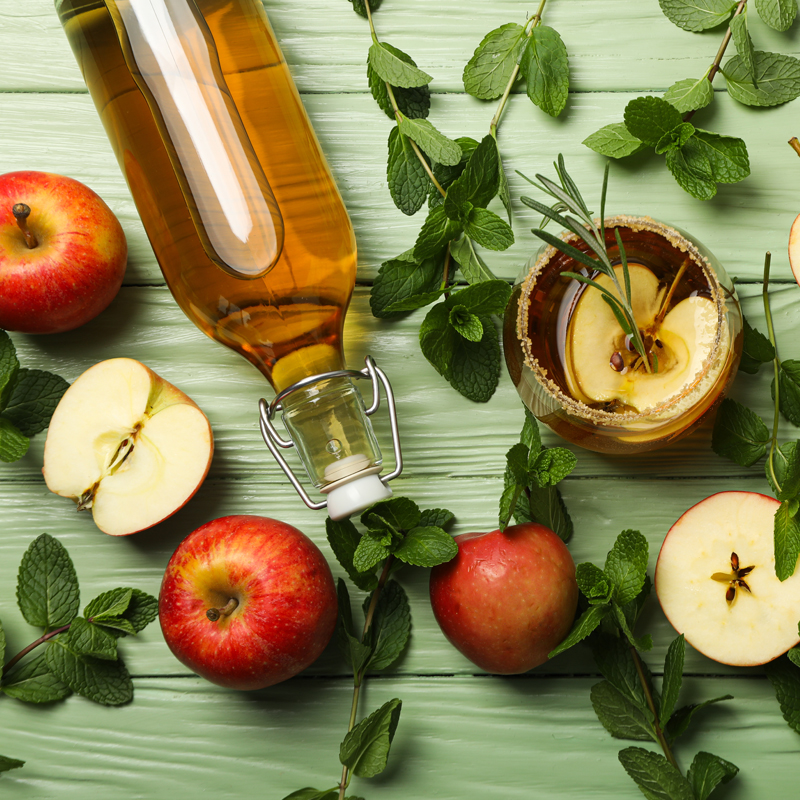
100 gr |
-- |
|
|---|---|---|
| Carbohydrate (gr) | 15.04 |
4928.47 |
| Protein (gr) | 3.59 |
1176.23 |
| Fat (gr) | 12.46 |
4083.43 |
| Fiber (gr) | 1.36 |
445.97 |
| Cholesterol (mg) | 14.64 |
4795.8 |
| Sodium (mg) | 325.27 |
106557.75 |
| Potassium (mg) | 392.16 |
128471.4 |
| Calcium (mg) | 78.15 |
25603.27 |
| Vitamin A (mg) | 46.04 |
15084.01 |
| Vitamin C (mg) | 6.16 |
2019.31 |
| Iron | 0.62 |
203.1 |
Vinegar is one of the few food products that is widely used around the world, including in our own country. Thanks to its numerous benefits, it has earned the title of a "health elixir." With a history as ancient as wine, vinegar has been utilized for centuries both as a natural remedy and as a natural sweetener. Produced through the fermentation of various fruits that are rich in acid, vinegar is categorized into different types depending on the fruit from which it is derived. You can find everything else you need to know about vinegar below.
The calories in apple cider vinegar are 21 calories per 100 ml.
While the specific benefits of vinegar can vary slightly depending on its type, most types share a range of similar effects. For example, many vinegars are considered strong antioxidants and offer numerous health advantages. Here's a detailed look at the key benefits of vinegar across different areas of health:
Vinegar helps eliminate harmful bacteria, thereby reducing the risk of infectious diseases. Its antibacterial properties not only make it a valuable tool for preventing illness but also aid in the treatment of certain infections. Some traditional remedies even use diluted vinegar as a natural disinfectant.
Often used as a natural cosmetic ingredient, vinegar—especially apple cider vinegar—can improve acne and blemishes. Its mild acidic nature helps to balance the skin’s pH and acts as a natural toner, promoting a healthier, more radiant complexion.
Vinegar is known for its ability to assist in regulating blood sugar levels. Particularly effective in lowering blood glucose after meals, it can be helpful for people managing type 2 diabetes or insulin resistance. Consuming a small amount of vinegar before meals may also help prevent post-meal blood sugar spikes.
Thanks to its ability to create a feeling of fullness, vinegar can serve as a supportive component in weight control. Its inclusion in healthy diets is common, as it may reduce appetite and calorie intake. Unlike synthetic weight loss aids, vinegar is a natural, low-calorie alternative.
Vinegar has shown potential in easing symptoms of chronic conditions such as migraines and sinusitis. When used regularly, some people experience a reduction in the frequency and severity of these discomforts. This is likely due to its anti-inflammatory and circulation-boosting effects.
Rich in essential nutrients and bioactive compounds, vinegar contributes to cardiovascular wellness. It may help reduce blood pressure, cholesterol levels, and improve overall heart function, making it a valuable addition to heart-conscious diets.
As a powerful antioxidant, vinegar offers protective effects against certain types of cancer. By combating oxidative stress and reducing inflammation—two major factors in cancer development—vinegar stands out as one of the few natural foods with significant anticancer properties.
Vinegar is more than just a kitchen staple—it's a time-tested natural remedy and wellness enhancer. From improving skin to supporting internal health, this simple fermented liquid offers a broad range of benefits. Including vinegar in your daily routine, whether in food or as part of a skincare regimen, may contribute to a healthier lifestyle.